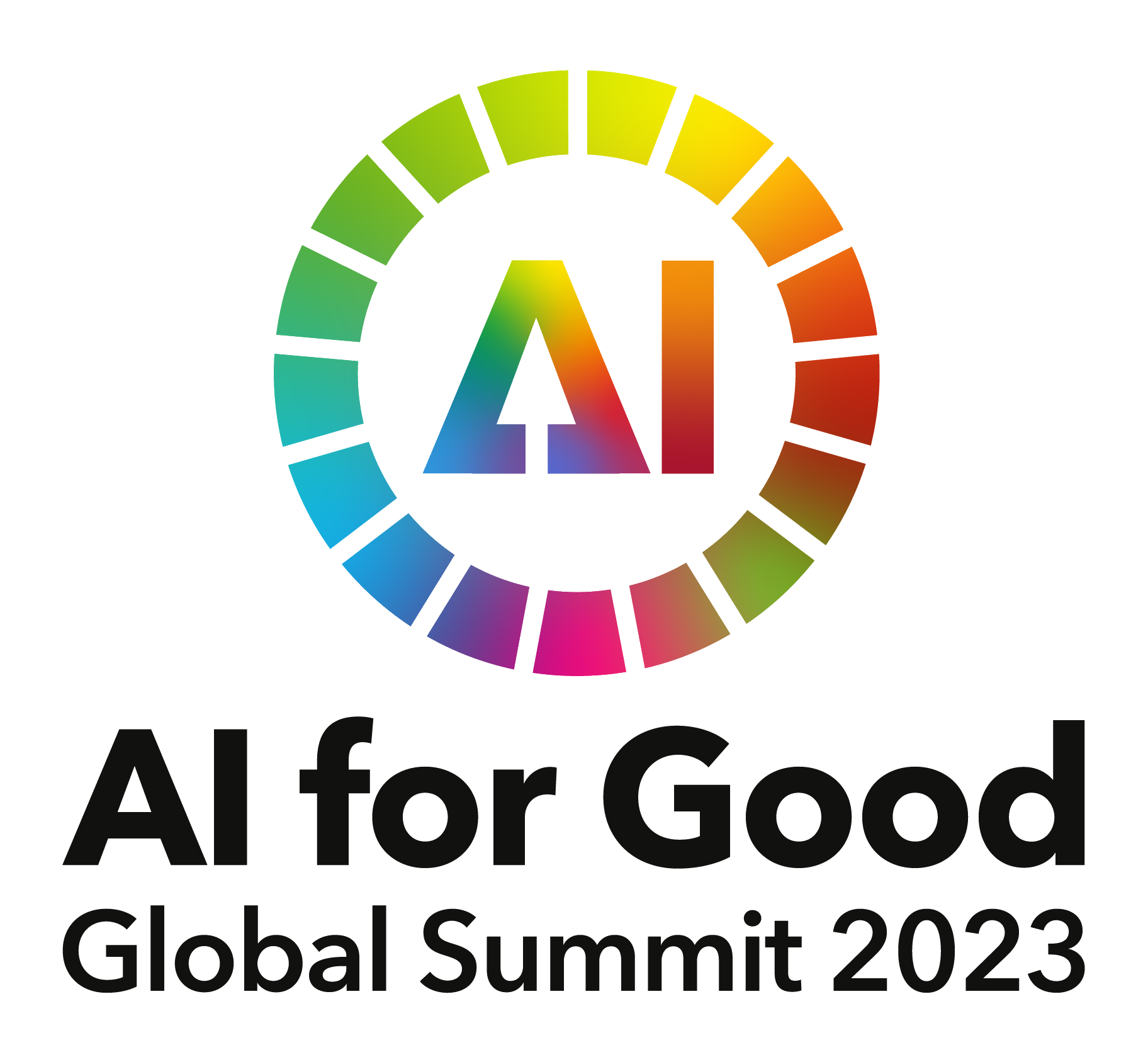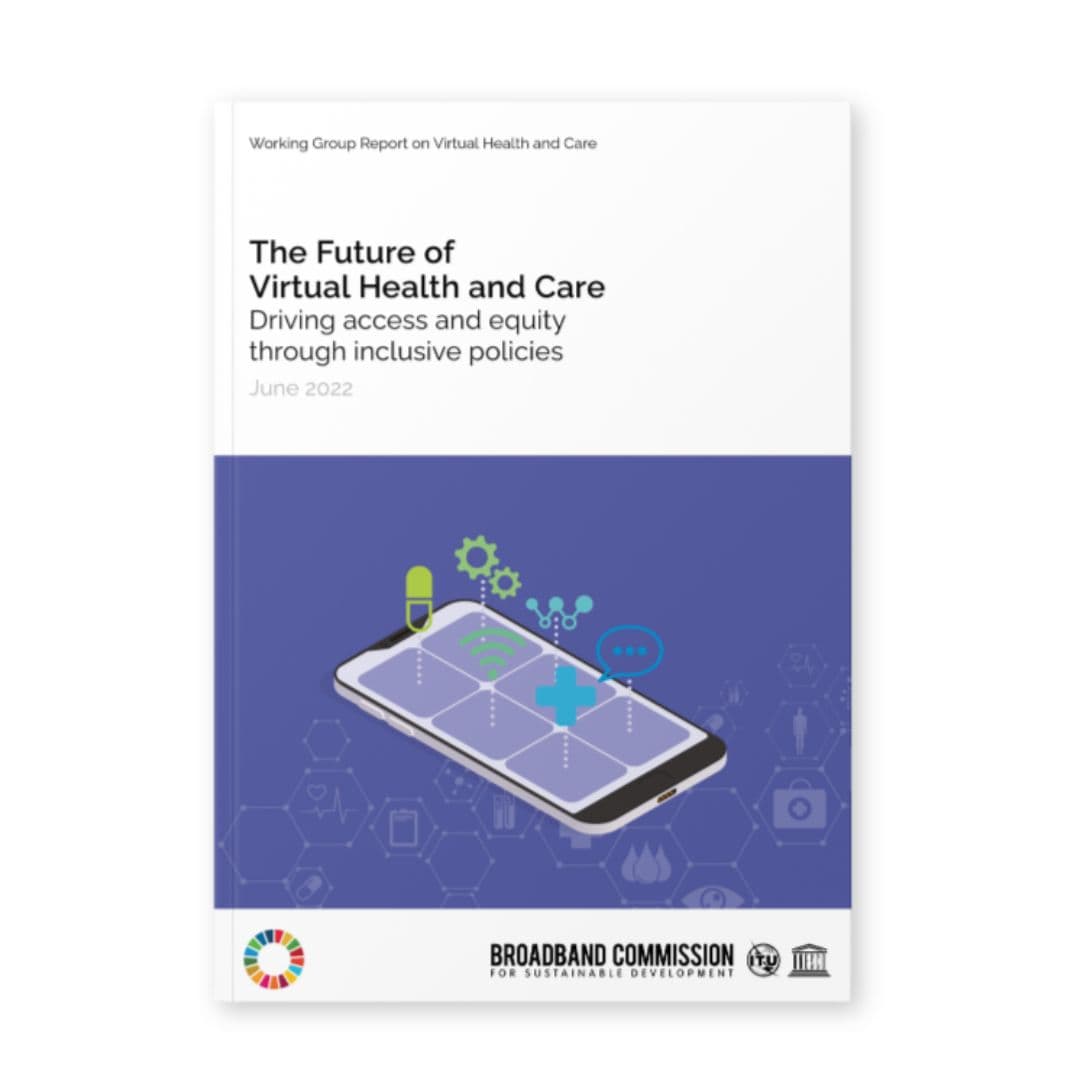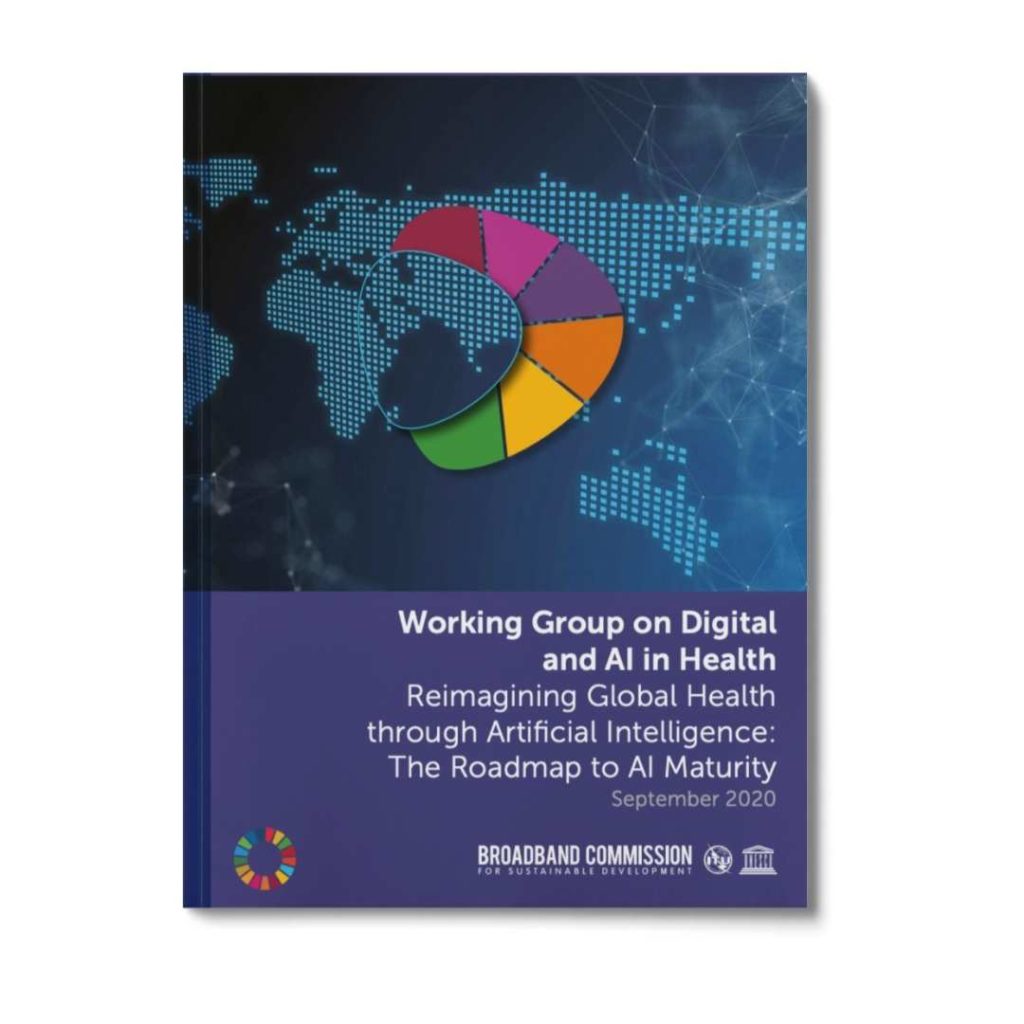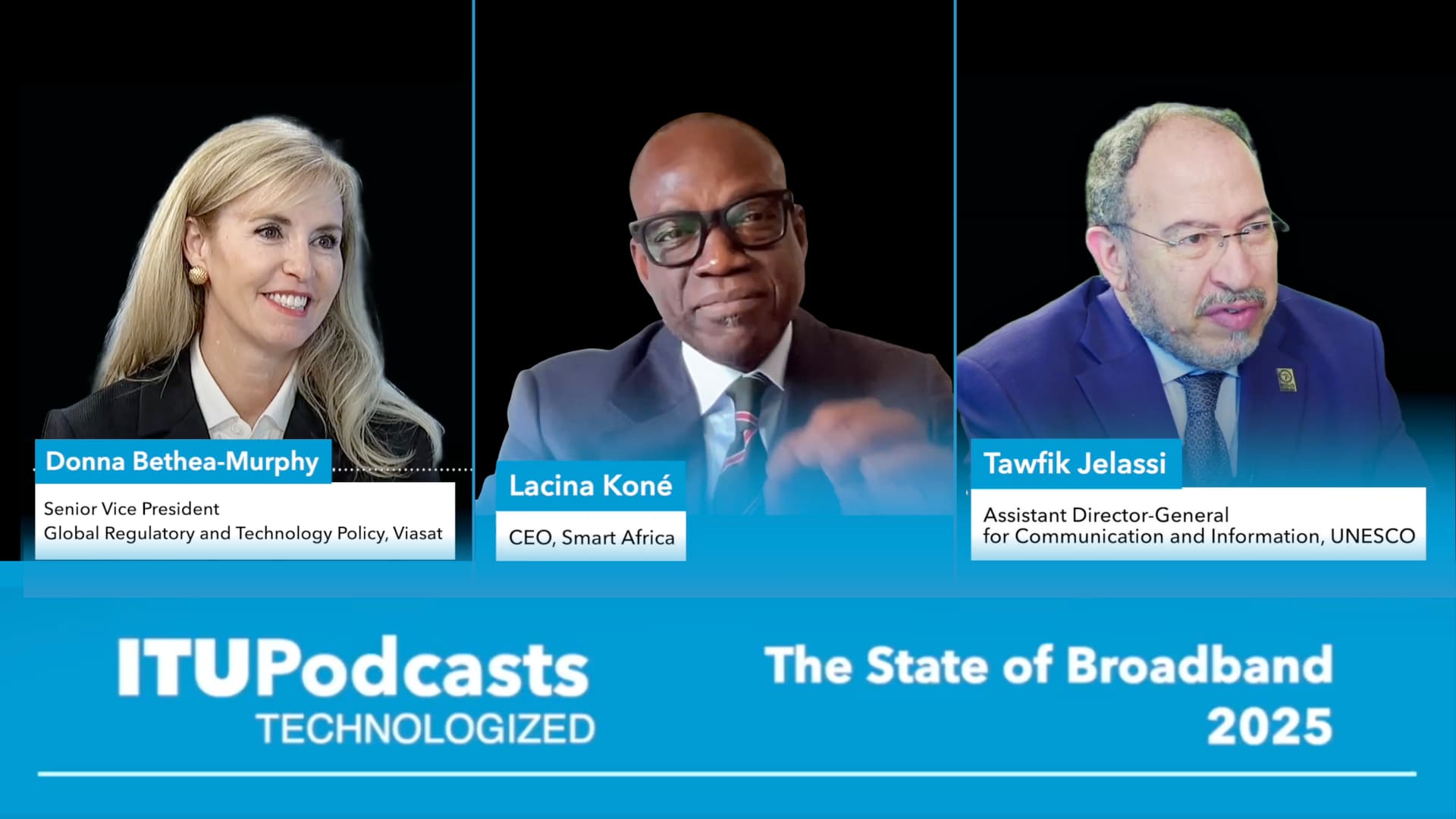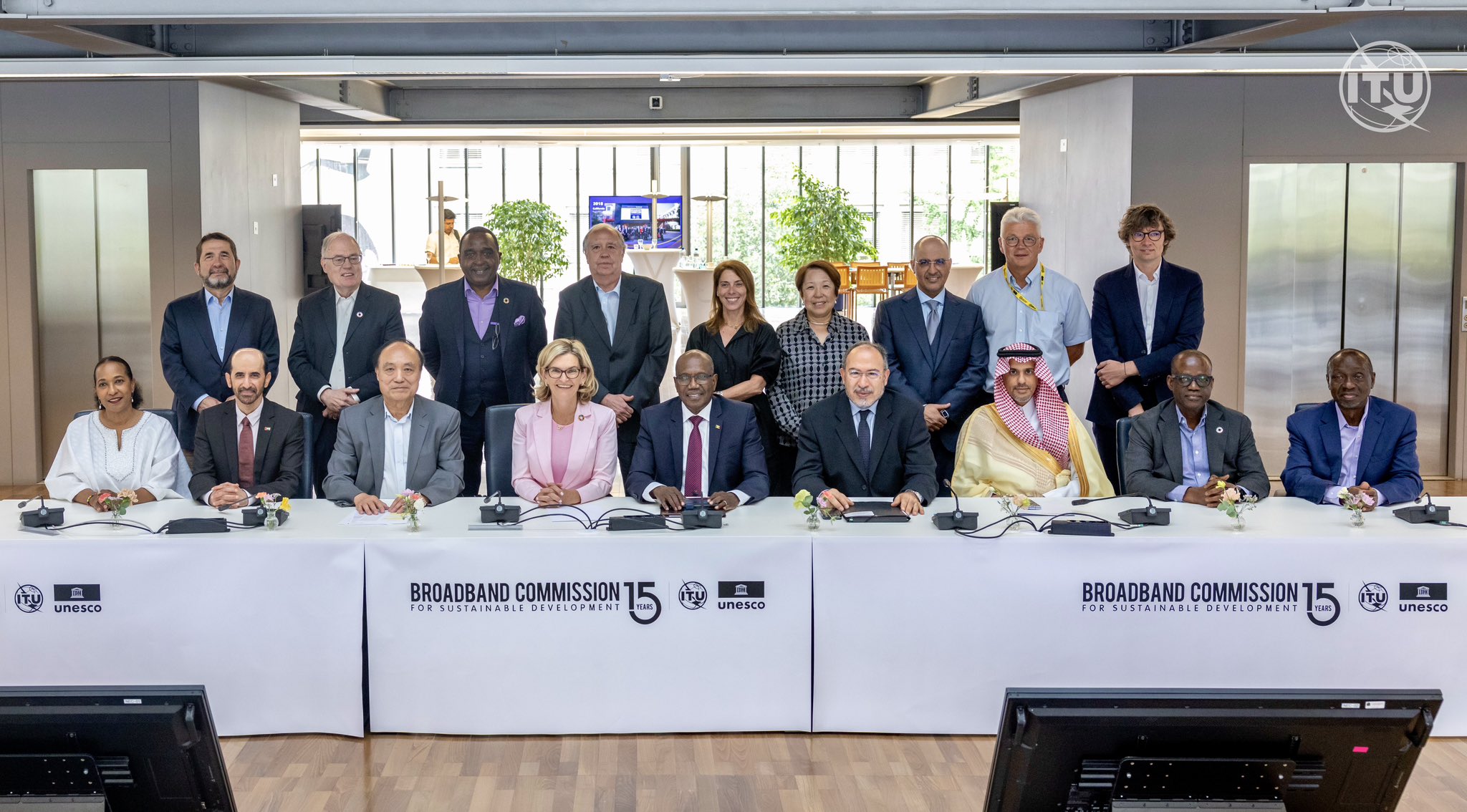
About the AI for Good Summit
The AI for Good Global Summit was held in Geneva, Switzerland 6-7 July 2023, focusing on the fundamental role of AI in getting the United Nations Sustainable Development Goals back on track by 2030.
AI for Good is organized by ITU in partnership with 40 UN Partner Agencies and co-convened with Switzerland. The AI for Good Global Summit is the leading action-oriented United Nations platform promoting AI to advance health, climate, gender, inclusive prosperity, sustainable infrastructure, and other global development priorities.
The summit was attended by global industry leaders and UN partners. In attendance were the Broadband Commission’s Co-Vice Chair and Secretary-General of ITU Ms. Doreen Bogdan-Martin, along with Broadband Commissioner and Director General of the World Health Organization (WHO) Dr. Tedros Adhanom Ghebreyesus in addition to representatives from member organizations UNESCO, UNDP, ZTE, and Huawei.
Commissioners at the Summit
On the first day of the summit, Ms. Bogdan-Martin emphasized the responsibility of utilizing AI to align with the 2030 agenda in her session titled “Firing on all cylinders – AI for a more connected, inclusive, and sustainable world.”. In her speech, she stressed that “Using AI to help put the 2030 agenda back on track is no longer just an opportunity, it’s actually our responsibility.”
She further emphasized the need to prioritize human values and ensure that AI benefits everyone, including the 2.7 billion people worldwide who are still offline and often left behind. She highlighted the importance of inclusion stating, “those who are left behind or at the very heart of the sustainable development goals, and they need to be at the heart of how we design AI.”
Looking ahead, she added that
“the era of generative AI is just beginning, and the future of AI is yet to be written so together let's make it innovative let's make it safe and let's make it responsible for all.”
In a later session titled “Responsible AI: technical solutions, governance frameworks“. Ms. Bogdan-Martin along with Representatives from UNESCO and UNDP, were present. The invitation-only meeting was held with the attendance of 40 UN agency partners and other stakeholders, including AI ethics, innovation and governance experts, exploring innovative technical solutions and global governance frameworks designed to cultivate responsible use of AI and Robotics.
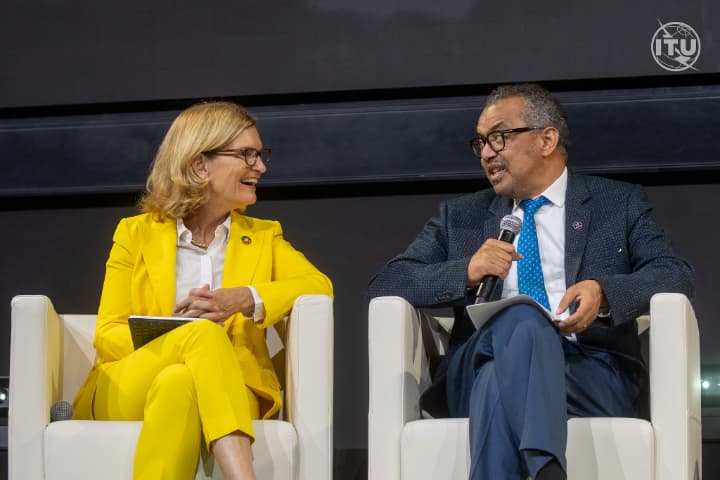
AI for Health
Ms. Doreen Bogdan-Martin and Broadband Commissioner Dr. Tedros Adhanom Ghebreyesus spoke at the Global Initiative on AI for Health session to launch the Global Initiative on AI for Health with the leadership from ITU, WHO, and WIPO.
In her remarks during the session, Ms. Bogdan-Martin stressed that ITU’s two strategic objectives: universal connectivity and sustainable digital transformation are “at the core of everything that we do and that goes beyond laying down the wires and launching satellites to ensuring that the opportunities and the benefits of digital reach everyone everywhere.”
Dr. Ghebreyesus highlighted the need for a commitment to equity and universal access and stressed on building awareness of its pitfalls stating, “while these new technologies hold great potential, we must be cognizant of governance ethics and equity the potential risks involved in deploying new technologies include unethical data collection and biases included in artificial intelligence.” He added,
"It's so important to work with governments and the private sector to promote equity including greater participation from low- and middle-income countries in research and development around digital health and artificial intelligence.”
Broadband Commission Work on AI & Health
The Broadband Commission has been actively engaged in exploring the application of technologies such as AI in the health sector. The Working Group on Digital and AI in Health in 2020 released the report Reimagining Global Health through Artificial Intelligence: The Roadmap to AI Maturity– examining the challenges, lessons learned and best practices for AI solutions and to provide actionable recommendations for all stakeholders to realize the full potential of AI in healthcare.
Building on this initiative, Commissioners Dr. Tedros Adhanom Ghebreyesus, Director General of the WHO, and Dr. Ann Aerts, Head of the Novartis Foundation co-chaired the the Working Group on Virtual Health and Care in 2022. The Working Group’s 2022 report, The Future of Virtual Health and Care: Driving Access and Equity Through Inclusive Policies, provides practical recommendations for the future of virtual health and care: how countries can achieve access and equity through inclusive policies.
Commissioner Representatives
- UNESCO and UNDP participated in the “Empowering women through AI” session, focusing on addressing the gender gap in the field and equipping women and girls with the necessary skills to become content creators and decision-makers in the AI ecosystem, promoting diversity and inclusivity.
- ZTE spoke at the “Bridging the last mile for digital transformation with Artificial Intelligence” session, which explored the role of AI in driving digital transformation, highlighting its ability to enable data-driven decision-making, enhance operational efficiency, and contribute to achieving the SDGs. They also joined the roundtable discussion on “State-of-the-art AI capabilities and managing a future with AI” focusing on governance, managing the digital divide and how AI can contribute to SDG 13 on climate action.
- Huawei spoke at the session “Exploring high-potential AI solutions from the ML5G and TinyML challenges” Which presented the “tinyML for Good Initiative,” showcasing the potential of energy-efficient machine learning at the edge in addressing SDG challenges, particularly in healthcare, sustainability, and STEM areas. The session also discussed the “ML5G Challenge,” highlighting the transformative impact of AI/ML on communication networks, with a specific emphasis on the intersection of AI, machine learning, and 5G networks.
The AI for Good Global Summit provided a platform for meaningful discussions, collaboration, and knowledge sharing among stakeholders, highlighting the significance of responsible and inclusive AI development to address global development challenges.
The recordings of the AI for Good Summit 2023 sessions are available on AI for Good’s Neural Network platform
Broadband Commission Work on AI
The Working Group on AI Capacity Building has developed three competency domains and nine recommendations. The output is The AI and Digital competency Framework– a practical guide for civil servants, international organizations and regional and national actors to support digital and AI capacity development.
The webinar session “Leading in the Digital Era: How can Public Sector Leaders Use AI for the Good of All?”introduces the AI and Digital Transformation Competency Framework. The framework and session aim to strengthen the abilities of the public sector to effectively use digital tools, develop and implement digital transformation projects, and address complex governance challenges.
As part of the STI Forum 2023, the Broadband Commission co-hosted the roundtable titled “Generative AI for the SDGs: Friend or Foe, Hope or Hype? ” This roundtable explores how generative AI can be used to accelerate progress towards the SDGs while addressing the associated risks.

